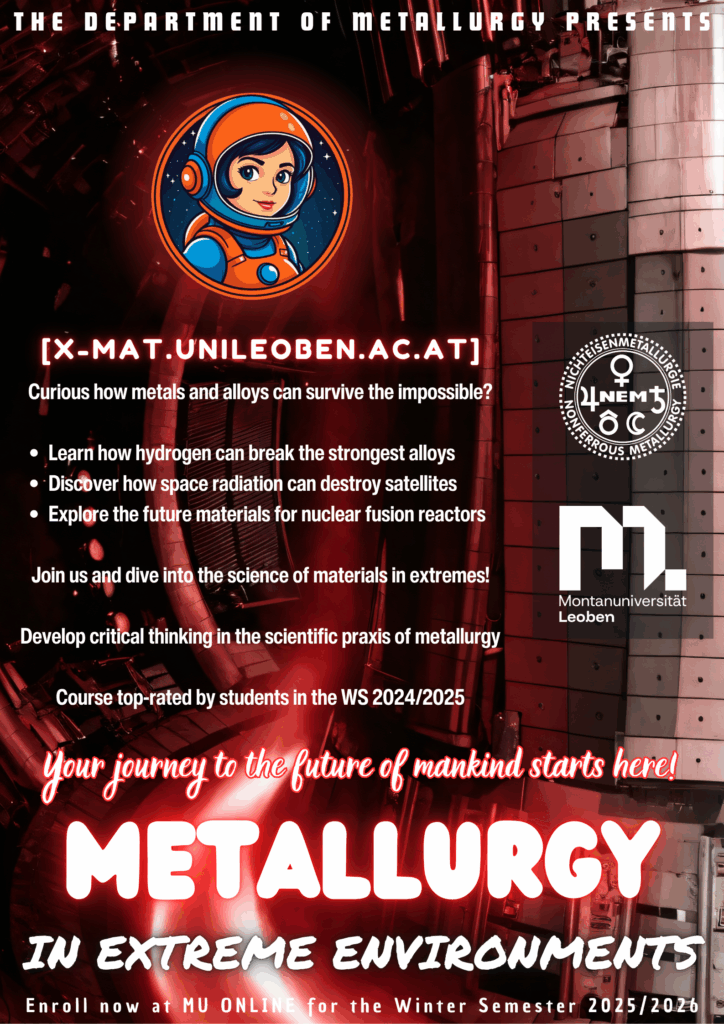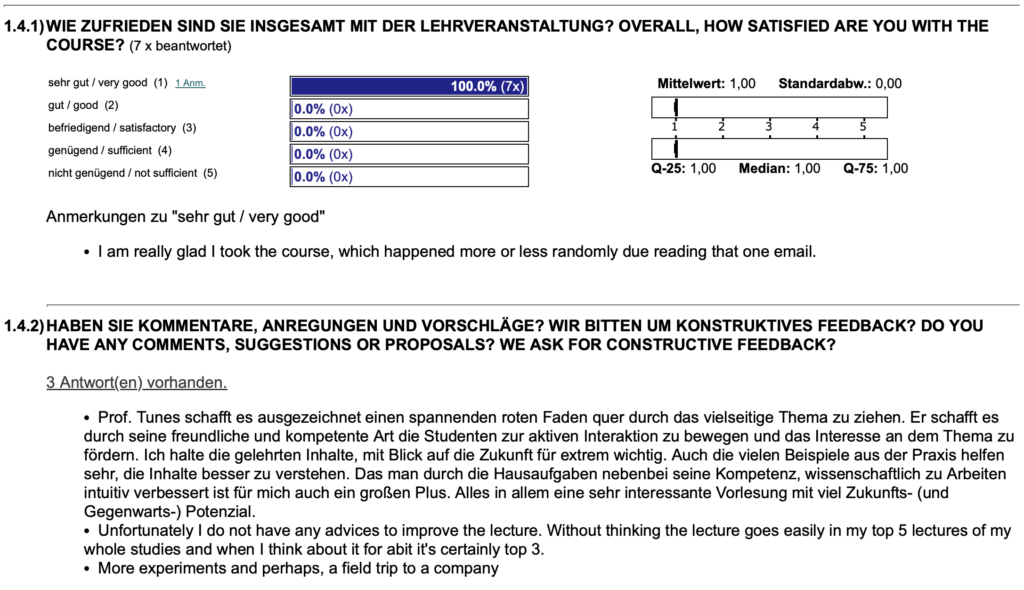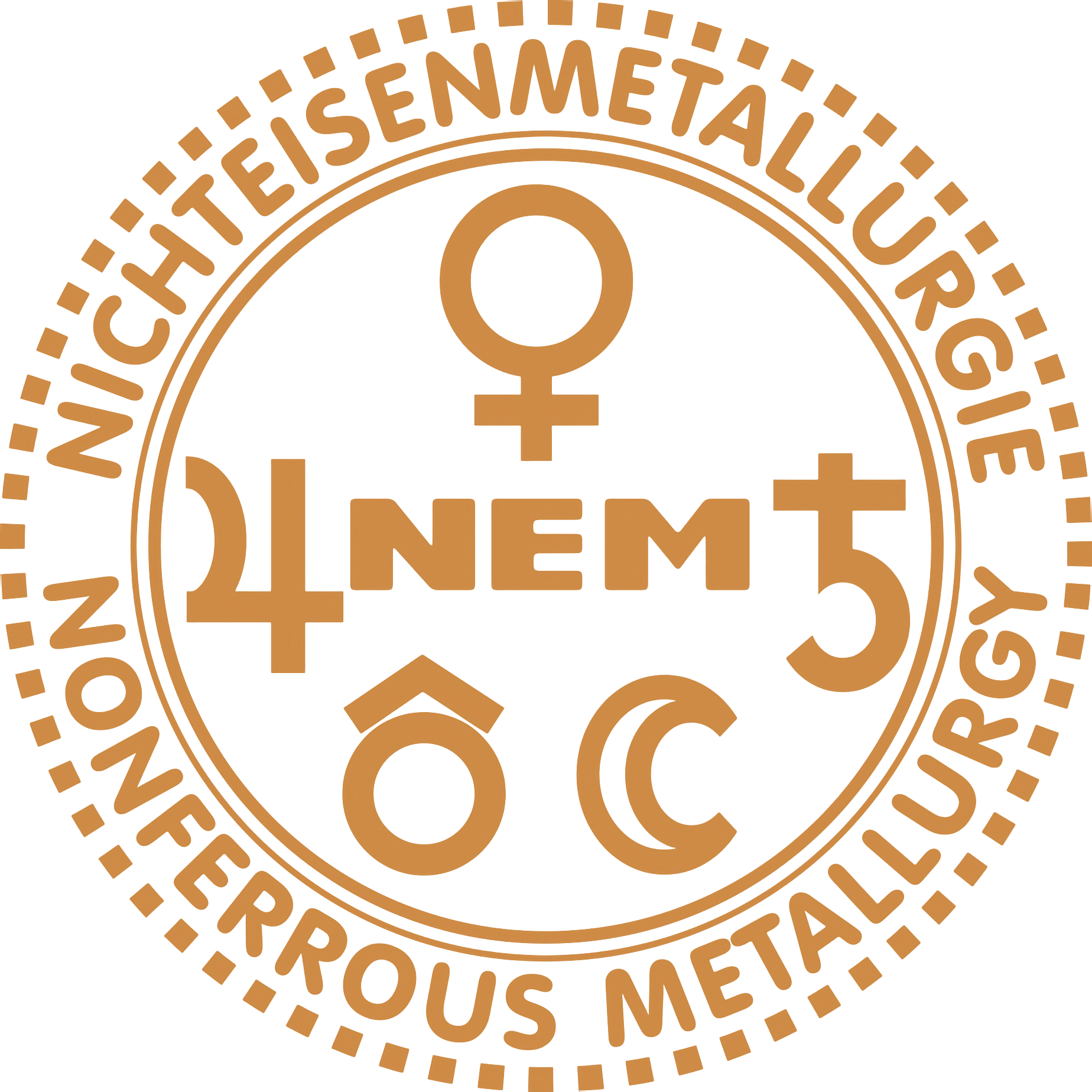The laboratory plays a vital role in the education and training of future metallurgists and materials scientists.
Through coursework, laboratory work, and research projects, students learn about the fundamental principles of metallurgy and the specific challenges associated with extreme environments.
In January 2025, we successfully concluded the first edition of the course “Metallurgy in Extreme Environments”!
The anonymous and independent evaluation by the students was outstanding: they gave the highest possible recommendation with some extremely nice remarks!
Stay tuned as we will re-offer the course for the Winter Semester 2025/2026!


General Description
| Title | Metallurgy in Extreme Environments |
| Number | 520.031 |
| Type | Module with continuous assessment |
| Semester hours | 4 |
| Offered in | Winter semester 2025/26 |
| Lecturer (Assistant) | Tunes, Matheus |
| Administrative staff |
| Organisation | Chair of Nonferrous Metallurgy |
| ECTS Credits | 5 ECTS-Credits |
Syllabus
| Content | Why the mechanical behaviour of an alloy degrades when hydrogen ingress its structure? How Solar protons can destroy satellite materials and jeopardize human-based space missions? Can we design new materials capable of enduring high-temperature plasma and particle irradiation in a thermonuclear fusion reactor? In this course, you will learn the principles of metallurgy in extreme environments. Multiple materials characterization techniques, materials selection and design will be introduced and discussed. The course is divided in three greater areas: 1. Materials for Hydrogen Energy a) Hydrogen-metal interaction b) Hydrogen damage in materials c) Hydrogen embrittlement mechanisms d) Design of new materials resistant to hydrogen Talk with specialist 2. Materials for Space Applications a) Humans in space: from cold war to present times b) Introduction to Solar weather c) Materials selection & criteria for space applications d) Materials degradation in extraterrestrial environments e) Materials degradation in exoplanets f) Design of new materials resistant to Solar proton irradiation Talk with specialist 3. Materials for Fusion Energy a) The challenge of thermonuclear fusion b) Materials degradation in a tokamak c) The problem of hydrogen and helium for materials d) Tungsten, Vanadium and Refractory High Entropy Alloys e) Nanocrystalline nonferrous alloys: The solution? f) Design of new materials resistant to fusion reactors Talk with specialist |
| Previous Knowledge Expected | Basic knowledge of physics, materials science, and physical metallurgy. |
| Objective (Expected Results of Study and Acquired Competences) | After completion of this course, you will be able to: – Identify and describe multiple mechanisms that cause materials degradation. – Understand the major challenges associated with materials design for hydrogen energy, fusion energy, and space applications. – Effectively think in new strategies to mitigate materials degradation mechanisms using both fundamental and modern principles of metallurgy. – Explore prospective careers in either scientific research or industry involving the application materials under extreme environments. |
| Languages of Instruction | English |


